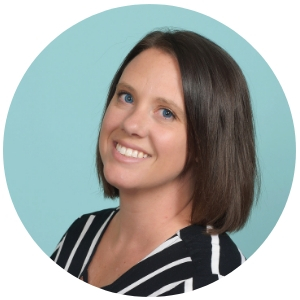Buying A Home Soon?
Buying a home is a major decision. Whether you’re a first time home buyer or you’ve owned dozens, you always have to ask yourself certain questions before moving forward. While you shop and compare mortgage rates, there are things that you may not consider about purchasing a home. Some of these things can affect the experience and your ability to get the home that you want, or to keep it once you do get it. These questions are easy to answer and knowing the answers can help you to stay financially secure and on the right path.
Get approved for your home loan today
Are You Ready?
Not everyone is ready for home ownership. If this is your first home, you may not know what it takes to own a home. Look into the costs associated with home ownership and the responsibilities that come with owning one. It is not as simple as some people might think. On top of that, the search itself can cause a large amount of stress. Some people underestimate the amount of effort, time, and money that goes into this. They might think that they will get their new home within days, or that owning a home is a breeze. While some people might find both of these easy, and might get their dream home almost immediately, that is not the case for most home buyers. Before starting on this adventure, know what to expect.
Do You Know How Much It Costs?
Home ownership is expensive. The cost of buying and paying for a home is sometimes immense. It is the price of the home itself, closing costs, mortgage, insurance, and various other fees. While you may own a home, you still have to pay several people to stay in it. There is also the price that you will have to pay to take care of the home in repairs and maintenance. The bigger the home and the more it offers, the more you will have to pay for everything. Pools cost money, yards cost money, property costs money, heating costs money, and nearly everything else you can think of will cost money. When you look into homes, estimate the total cost you would have to pay per year on it.
Do You Know How Much You Can Afford?
On top of knowing what a home costs, you should know what you can afford. Calculate how much you earn, monthly or yearly. Calculate how much a home will cost you in the same period. The home should not go over or come too close to the amount that you earn. Remember, you have to manage the home, utilities, food, gas, new items, and luxuries while still having some money to save. Everything that you plan to spend and put away each month should go into your calculations. If it looks like you will have to live paycheck to paycheck, you should go for a home that you can afford comfortably.
When first moving in, you should also make sure that you have several months’ worth of bills saved for emergency purposes. This avoids any unknowns and financial dangers.
What Will You Put Down?
Your down payment is essential for getting a home. The down payment amount is not the same for everyone. Some people might put down 5%, while others might put down 25%. How much you can put down depends on your income and mortgage. The more that you can put down right away, though, the lower that your mortgage is. You want to make sure that you put a lot of thought into the down payment of your home. There are even programs with as little as 3% down payment or zero down payment.
Have You Readied the Other Fees, Too?
Along with a down payment, you have to get closing costs and other fees ready. Buying a home is not just about getting the mortgage in line; you have to pay several amounts right away. These are not amounts covered by your mortgage, but you can get help from some lenders. There are certain lenders and systems in place for people who need help paying. Look into these if you cannot afford the down payment or the other fees you have to pay.
Have You Checked Out Your Finances and Credit?
Before you attempt to get a mortgage, make sure that you look into your financial history and your credit score. A mortgage is a loan, after all, and your history with money is important to get one. If you have a poor history, you might have to pay considerably more money to receive a mortgage, through either interest or a down payment or both. Try to fix up your credit history by removing items that should not be there, by paying off or down debts, and by trying to increase your credit score. Doing all of this will make you more likely to receive a good mortgage loan from a trusted lender. It makes buying a home easier and more affordable for you.












